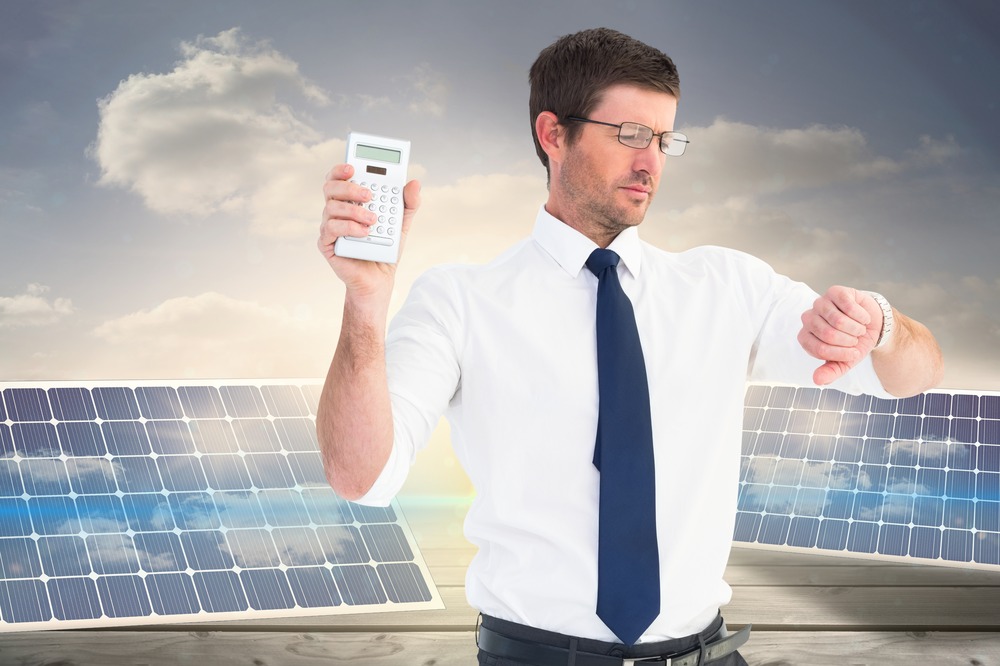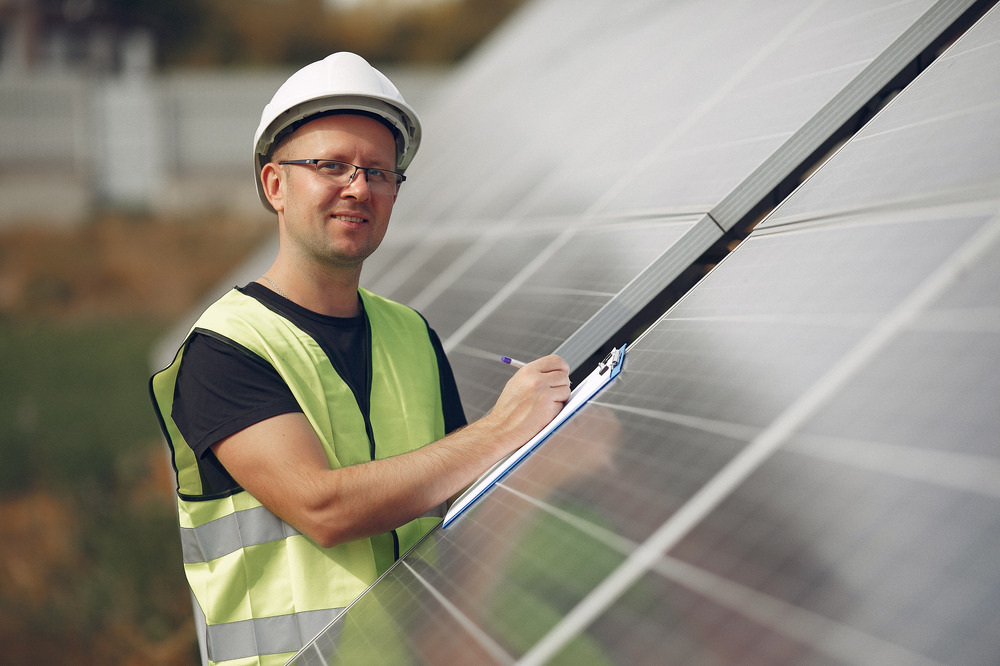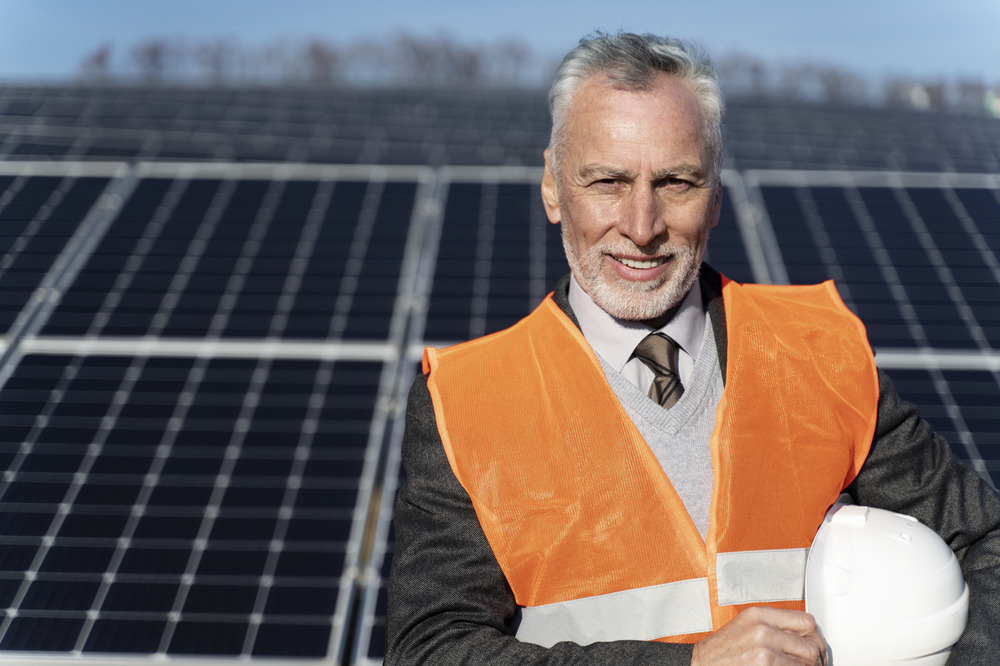Summer energy bills often spike due to increased cooling needs, time-of-use pricing, and high grid demand. As temperatures rise, homeowners look for cost-effective ways to manage electricity expenses without sacrificing comfort. The adoption of solar energy is on the rise. As of now, there are over a million solar installations across the United States, reflecting a significant increase in residential solar adoption. More homeowners are recognizing that solar energy solutions not only reduce utility bills but also provide long-term financial and environmental benefits. By utilizing solar panels, property owners can lower their dependence on the grid, cut electricity costs, and create a more energy-efficient home.
Here are the top three ways solar energy solutions can help lower costs during peak summer months.
Table of Contents
Key Takeaways✔ Solar panels generate electricity during peak demand hours, lowering reliance on expensive grid power and helping homeowners save money through net metering. ✔ Solar energy solutions power air conditioning, reduce heat absorption, and improve ventilation, lowering overall cooling expenses during the hottest months. ✔ Solar battery storage allows homeowners to store excess energy for use during peak pricing hours, reducing grid dependence and ensuring power availability during outages. |

Why Summer Energy Bills Are So High
Summer energy bills tend to skyrocket due to a combination of increased cooling needs, fluctuating electricity pricing, and strain on the power grid. The combination of these factors leads to a significant rise in energy consumption, causing financial stress for homeowners and businesses alike.
1. Increased Air Conditioning Usage
One of the biggest contributors to high summer electricity bills is the increased demand for air conditioning. As temperatures climb, cooling systems work harder and for longer durations to maintain comfortable indoor environments. This leads to higher energy consumption, particularly in regions that experience prolonged heat waves.
Why Air Conditioning Costs So Much in the Summer
- Longer Operating Hours: Air conditioners run more frequently and for extended periods, consuming more electricity than in cooler months.
- Decreased System Efficiency: As outdoor temperatures rise, AC units must work harder to cool indoor spaces, leading to increased wear and tear and reduced efficiency.
- Poor Insulation: Homes without adequate insulation or energy-efficient windows allow heat to seep in, making air conditioners work even harder.
2. Time-of-Use Pricing Drives Up Costs
Many utility companies implement time-of-use (TOU) pricing, meaning that electricity costs vary depending on the time of day. During summer, peak pricing is often in effect between 4 PM and 9 PM, when most people return home, turn on lights, use appliances, and run air conditioning units.
How Time-of-Use Pricing Impacts Bills
- Higher Costs in the Evening: Electricity is most expensive when demand is highest, typically in the late afternoon and evening.
- Unavoidable Energy Consumption: Essential household activities—such as cooking, cooling, and entertainment—occur during peak hours, making it difficult to reduce energy use.
- Billing Surprises: Many homeowners are unaware of TOU pricing changes and are shocked by unexpectedly high bills at the end of the month.
3. Greater Grid Demand Causes Price Surges
In the summer, millions of homes and businesses increase their electricity usage at the same time. This simultaneous demand places a huge strain on the power grid, leading to price surges and even power outages in extreme cases.
Why High Grid Demand Leads to Higher Costs
- Limited Power Supply: Utility companies struggle to meet demand, forcing them to purchase extra electricity from expensive sources or activate reserve power plants.
- Increased Maintenance Costs: The grid requires more upkeep during high-demand periods, and these costs are often passed on to consumers in the form of higher rates.
- Risk of Rolling Blackouts: When demand surpasses supply, utility companies may implement rolling blackouts, cutting off electricity for certain areas to prevent system failure.
4. Inefficient Appliances and Energy Waste
Many households unknowingly contribute to high summer electricity bills by using outdated appliances and engaging in inefficient energy habits.
Common Energy-Wasting Mistakes in the Summer
- Running Old Air Conditioners: Older AC units use far more energy than modern energy-efficient models, leading to higher cooling costs.
- Using Incandescent Lighting: Traditional light bulbs emit heat and use more energy than LED alternatives, adding to cooling expenses.
- Keeping Electronics Plugged In: Devices left on standby mode continue to draw power, increasing energy usage even when they’re not in use.
- Overusing Water Heaters: While summer heat increases AC usage, water heaters still consume a significant amount of energy, especially if set at high temperatures.
5. Rising Energy Prices and Market Volatility
Energy prices fluctuate due to supply and demand, fuel costs, and government regulations. During summer, prices tend to rise as power companies face increased production and distribution expenses.
Why Electricity Costs More in the Summer
- Increased Demand for Natural Gas and Coal: Many power plants still rely on fossil fuels, which experience price spikes during high-demand months.
- Transmission and Distribution Costs: Moving electricity from power plants to homes becomes more expensive as demand increases.
- Weather-Related Disruptions: Extreme heat, storms, and natural disasters can damage infrastructure, leading to price hikes to cover repair costs.
Why Work with a Professional Roofing Contractor for Solar Installation
Installing solar panels is a significant investment that requires careful planning and execution. While solar energy solutions offer substantial financial and environmental benefits, proper installation is key to maximizing their effectiveness. Solar energy companies specialize in panel installation, but they may lack the necessary expertise to assess roof conditions and ensure long-term structural stability. This is why working with a professional roofing contractor is essential—not just for safety, but also for ensuring the system’s efficiency and longevity.
At the same time, the cost of solar energy has been steadily declining, making it more accessible for homeowners. A recent report indicates that new renewable energy projects, including solar energy, now offer cheaper production costs than new coal and gas plants globally. This trend is expected to continue, with projected cost declines of 2-11% in 2025 and 22-49% by 2035. By investing in solar panel installation today, homeowners can take advantage of lower upfront costs while securing long-term savings as technology continues to improve. However, to fully reap these benefits, proper solar panel installation is critical—something that a roofing contractor can help facilitate.
1. Ensuring a Strong Roof Foundation
A solar panel installation adds significant weight to a roof, and not all roofing structures are designed to handle it. A professional roofing contractor conducts a thorough assessment to ensure that the existing roof can support the additional load without compromising its structural integrity.
What Roofing Experts Check Before Solar Panel Installation
- Roof Age and Condition: Older or deteriorating roofs may need repairs or full replacement before installing solar panels to avoid costly issues down the road.
- Load-Bearing Capacity: Solar panels, mounting equipment, and wiring can be heavy. Roofing professionals determine if reinforcements are needed to support the added weight.
- Material Compatibility: Some roofing materials, such as slate or clay tiles, are more fragile and may require specialized installation techniques to prevent cracking or breakage.
2. Optimizing Panel Placement for Maximum Efficiency
Proper positioning of solar panels is essential for maximizing solar energy production. While solar installers focus on technical setup, roofing contractors have the expertise to determine the best placement based on roof shape, slope, and sun exposure.
How Roofers Improve Solar Panel Efficiency
- Evaluating Sun Exposure: Roofing professionals analyze shade patterns, roof angles, and obstructions like trees, chimneys, or neighboring buildings that might block sunlight.
- Adjusting for Roof Pitch: The ideal panel angle depends on geographic location. A roofing contractor ensures that solar panels are installed at an angle that captures the most sunlight year-round.
- Assessing Wind Resistance: Poorly placed solar panels can be vulnerable to strong winds. A roofing expert secures mounting systems in a way that minimizes risks of uplift or shifting.
3. Preventing Roof Damage and Leaks
Improper solar panel installation can cause severe roofing problems, including leaks, water damage, and premature deterioration. Drilling into roofing materials without proper sealing techniques can create weak spots where water can seep in, leading to costly repairs.
Common Roofing Issues Caused by Poor Solar Installation
- Compromised Waterproofing: Incorrectly installed solar mounts can puncture roofing membranes, leading to leaks during heavy rains.
- Structural Weakness: Excessive drilling or improper attachment methods may weaken roof integrity, increasing the risk of sagging or collapsing over time.
- Blocked Drainage Systems: Solar mounting equipment and wiring can obstruct water flow if not strategically placed, causing pooling and potential roof deterioration.
4. Enhancing Energy Efficiency Beyond Solar Panels
A roofing contractor can offer additional energy-efficient solutions that complement solar energy systems, further reducing electricity costs and improving home performance.
Energy-Efficient Roofing Upgrades to Pair with Solar Panels
- Cool Roof Coatings: Reflective coatings reduce heat absorption, keeping interiors cooler and improving the efficiency of solar energy solutions.
- Improved Insulation: Proper insulation reduces temperature fluctuations, lessening the need for excessive air conditioning use.
- Ventilation Enhancements: Roofing professionals may recommend solar attic fans or ridge vents to help regulate indoor temperatures.
5. Ensuring Seamless Solar Integration and Long-Term Durability
A poorly installed solar system can lead to long-term headaches, from misaligned panels to premature roof failure. Working with a roofing expert ensures that solar panels are integrated into the existing structure in a way that enhances durability and performance.
How Roofing Contractors Support Long-Term Solar Success
- Coordinating with Solar Installers: Professional roofers and solar technicians work together to design an installation plan that aligns with both energy and structural requirements.
- Providing Warranty Protection: Many roofing companies offer warranties on their work. If solar panel installation damages the roof, these warranties ensure repairs are covered.
- Planning for Future Roof Maintenance: If the roof needs maintenance or repairs in the future, a well-planned solar system ensures easy panel removal and reinstallation.
3 Ways Solar Energy Helps You Beat Summer Rates
1. Reduce Peak Energy Costs with Solar Panels
One of the greatest advantages of solar panels is their ability to generate electricity during peak demand hours when electricity rates are highest. Solar panel benefits include reducing dependence on the grid, offsetting high electricity costs, and even earning energy credits through net metering.
How Solar Panels Offset High Energy Costs
- Producing Energy During Peak Hours: Utility rates typically rise between 4 PM and 9 PM, when demand is at its highest. Since solar panels generate power throughout the day, this reduces reliance on expensive grid electricity.
- Lowering Dependence on the Grid: When a home or business produces its own solar energy, it requires less electricity from utility providers, cutting costs and reducing exposure to price fluctuations.
- Taking Advantage of Net Metering: Many utility companies offer net metering programs that allow property owners to send excess solar energy back to the grid in exchange for credits. These credits can then be used to offset electricity bills.
2. Cut Cooling Costs with Solar-Powered Solutions
Cooling a home or business during the summer months can be costly, but solar energy solutions help reduce these expenses in multiple ways. By using solar panels to power air conditioning units, minimizing heat absorption, and leveraging solar-powered ventilation, homeowners can drastically lower their cooling costs.
How Solar Panels Help Reduce Cooling Expenses
- Powering Air Conditioning with Solar Energy: Air conditioning systems account for a significant portion of summer electricity bills. By using solar panels to power these systems, homeowners can cut costs while maintaining indoor comfort.
- Reducing Heat Absorption with Solar Panels: Solar panel installation on rooftops provides a barrier between the sun and the home’s interior, preventing heat from penetrating the roof and keeping indoor spaces cooler.
- Utilizing Solar-Powered Ventilation: Solar attic fans and ventilation systems help remove excess heat, reducing the strain on air conditioning units and decreasing overall energy consumption.
3. Lock in Savings with Solar Battery Storage
One of the most effective ways to maximize solar panel benefits is by incorporating battery storage. Solar panel installation combined with a high-capacity battery allows homeowners and businesses to store excess energy for use during peak pricing hours or even power outages.
How Solar Battery Storage Helps Reduce Costs
- Storing Excess Energy for Nighttime Use: Solar panels generate energy during the day, but electricity demand often peaks in the evening. A solar battery allows homeowners to store energy and use it at night instead of relying on costly grid electricity.
- Reducing Grid Dependence During Peak Pricing: Many utilities charge higher rates in the evening when energy demand is highest. Using stored solar energy helps homeowners avoid these expensive time-of-use charges.
- Ensuring Energy Independence: With a battery backup, homeowners can maintain power even during outages, preventing disruptions caused by grid failures or blackouts.
How to Maximize Your Solar Investment for Long-Term Savings
Investing in solar energy solutions is a smart financial decision, but homeowners can take additional steps to enhance their savings and optimize performance. A well-maintained and strategically integrated solar panel system will yield better results over time, ensuring that property owners get the highest return on investment.
Monitor Energy Production
Keeping track of solar panel output helps identify potential performance issues and optimize efficiency. Many solar systems come with monitoring tools that allow homeowners to track daily energy generation, spot irregularities, and address system inefficiencies before they become costly problems.
Upgrade to Energy-Efficient Appliances
Using solar energy in conjunction with high-efficiency appliances reduces overall energy consumption and increases savings. Swapping out outdated devices for ENERGY STAR-rated air conditioners, refrigerators, and lighting systems helps minimize electricity waste while allowing homeowners to maximize the energy generated by their solar panels.
Take Advantage of Solar Incentives
Many states and local governments offer tax credits, rebates, and financing programs to help offset the initial cost of solar panel installation. By researching available incentives, homeowners can significantly reduce their upfront investment while increasing their long-term financial gains. Some utility companies even provide additional incentives for homes that integrate solar energy solutions with energy storage systems, further enhancing savings opportunities.
Schedule Routine Maintenance and Cleaning
Keeping solar panels clean and free from debris ensures maximum sunlight absorption and consistent energy output. Dirt, dust, and bird droppings can accumulate over time, reducing panel efficiency. Scheduling professional inspections and occasional cleanings helps prevent energy loss and ensures that solar panel benefits remain at their peak.
Store Excess Energy with Battery Backup
Installing a solar battery storage system allows homeowners to store excess energy produced during the day and use it when grid electricity rates are highest. This not only maximizes savings but also provides backup power in case of outages or grid failures. By utilizing stored solar energy during the evening or on cloudy days, property owners can become more self-sufficient and less reliant on traditional electricity providers.
Frequently Asked Questions
How do solar panels work?
Solar panels convert sunlight into electricity using photovoltaic (PV) cells, which generate an electric current when exposed to sunlight. This electricity is then converted from direct current (DC) to alternating current (AC) by an inverter for household use. Any excess energy can be stored in a battery or sent back to the grid through net metering.
What is the lifespan of solar panels?
Most solar panels last 25 to 30 years, though they continue to generate electricity beyond this period at reduced efficiency. The average degradation rate is about 0.5% per year, meaning they retain about 85% efficiency after 25 years. Regular maintenance and proper installation can help extend their lifespan.
Do solar panels work during cloudy or rainy days?
Yes, solar panels still generate electricity on cloudy or rainy days, though their output is reduced due to lower sunlight levels. They can produce 10% to 25% of their normal capacity, depending on cloud thickness and weather conditions. Many systems are paired with battery storage to ensure consistent power during low-sunlight periods.
Can solar panels increase my home’s value?
Homes with solar energy systems often sell faster and at higher prices, as buyers value lower energy costs and sustainability benefits. According to studies, homes with solar can increase in value by 3% to 5% on average. This investment not only saves on electricity but also enhances resale potential.
Can I install solar panels if my roof is shaded?
While shading reduces solar panel efficiency, options like micro-inverters and power optimizers can help minimize energy loss. Strategic panel placement and trimming nearby trees can improve sunlight exposure. Alternatively, homeowners can consider ground-mounted solar panels or participate in community solar programs.
Get Started with Solar Today – Work with Roofer of Pleasant Valley!
Investing in solar energy solutions is a smart way to cut summer electricity costs, improve energy efficiency, and increase your home’s value. To ensure a seamless solar panel installation, work with an experienced roofing contractor who understands structural integrity, panel placement, and long-term durability. That’s where Roofer of Pleasant Valley comes in! For residents in Pleasant Valley, NY, Roofer of Pleasant Valley provides expert roofing assessments to ensure your home is ready for solar panels. Our team ensures proper installation without compromising your roof’s integrity, helping you maximize solar panel benefits for years to come. Whether you need a roof inspection, reinforcements, or the best solar-ready roofing materials, Roofer of Pleasant Valley is your trusted partner in Pleasant Valley, NY.
Contact Roofer of Pleasant Valley today to schedule a consultation and get your home solar-ready in Pleasant Valley, NY!



